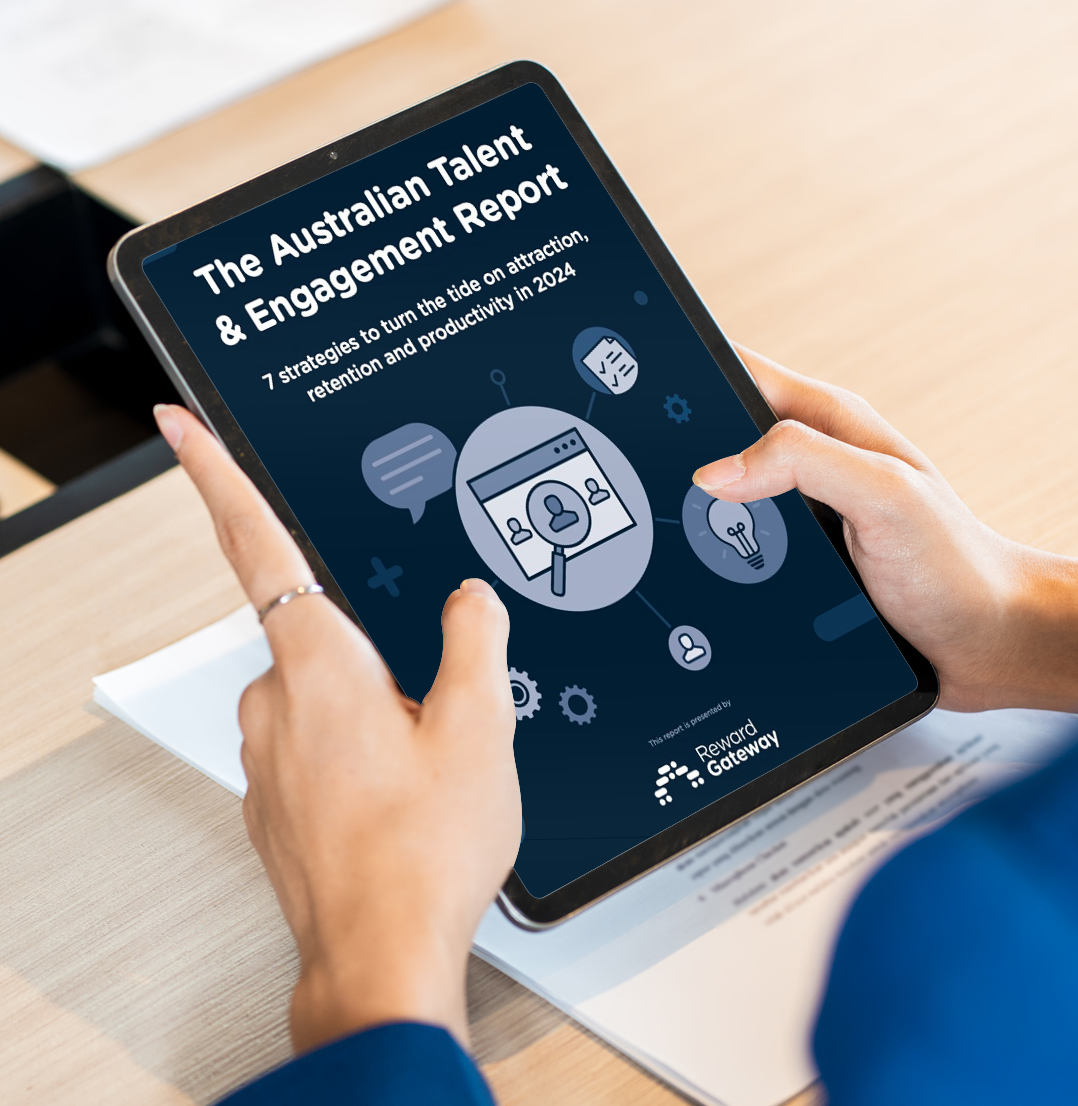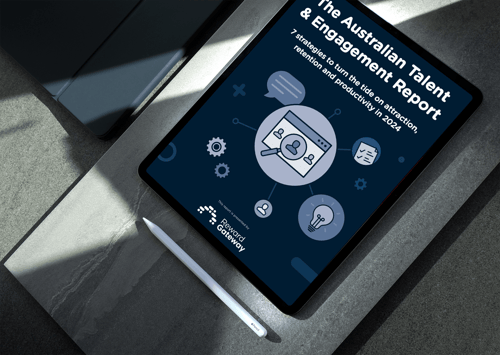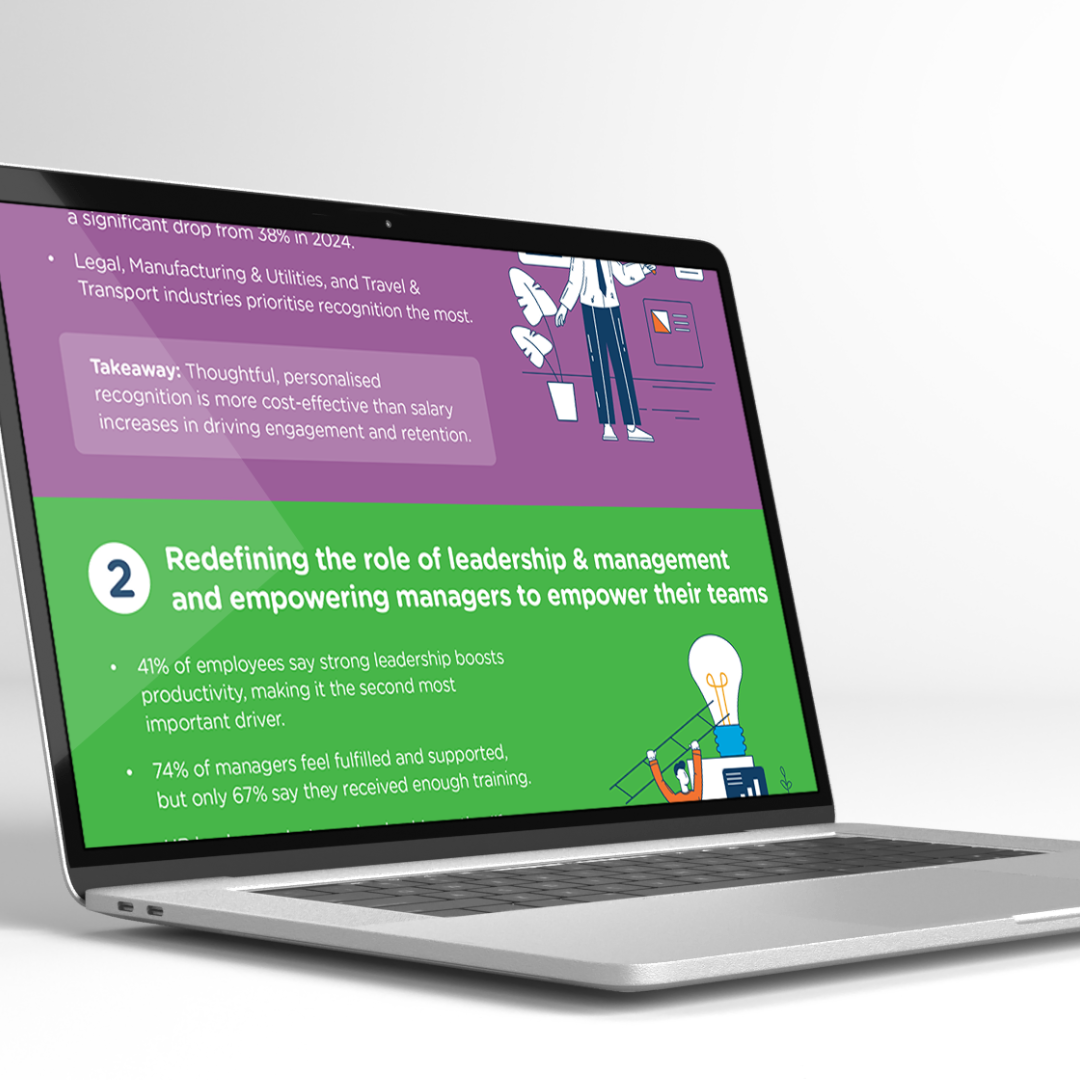Disrupted office culture, shifting work modalities and evolving employee needs have been the norm over the last few years. We’ve witnessed what feels like decades of change compressed into years or even months. With so much change and uncertainty in the air, it’s no surprise that so many business leaders are facing complex challenges as they plan for the future.
It's clear there's a lot to navigate, including:
- Helping Australians manage cost of living increases
- Shifting rights and responsibilities around wellbeing
- Return-to-work planning and designing remote, hybrid and in-office work to maintain a strong company culture
- Increasing productivity and growth targets to support our economy
- Growing demands for hyper-personalisation in both our personal and professional lives
Here at Reward Gateway we’ve been keeping our finger on the pulse of workplace trends and developments annually to help HR leaders focus their energies and efforts.
Our recent survey of 1,000 employees and 1,000 HR decision-makers across Australia revealed the nuances of what’s working now, what’s not, what employees want and don’t want and what HR managers are doing to engage them.
Amongst the findings, three key insights really stood out to me as critical focus areas for HR and business leaders as they strive to improve retention in a talent-short market. I’d love to hear your thoughts in the comments about these trends and how your business has adapted.
1. 68% of HR leaders are increasing their investment in employee engagement
It’s likely most of your C-suite has felt the pain of the bottom line cost of unwanted attrition. More and more executives are seeing talent attraction and engagement as the key to unlocking scalable productivity and growth.
Our survey results reveal that 68% of HR leaders are planning to increase their investment in hiring, onboarding, communication, recognition and reward, benefits and learning and development.
This renewed focus on the levers that influence employee retention comes as no surprise, since 70% of employers are concerned about employees quitting – even more than in 2022, with medium-sized organisations the most concerned at 77%.
Executive support for initiatives that drive engagement and improve an organisation’s employee value proposition has increased because more and more executives understand that securing and retaining the right talent is a key contributor to achieving strategic goals.
2. HR leaders are rethinking total rewards in the wake of cost of living pressures
As the rising cost of living has impacted employees across all generations in different ways, leading employers are revisiting and repackaging their total rewards offering to ensure employees receive a wide range of support to improve their financial, physical, mental, emotional and social wellbeing.

According to our research, 53% of Australian employees say that stress from cost of living increases is negatively impacting their work. We also found that 80% of HR managers believe employees have a good understanding of how to maximise financial wellbeing benefits at work, but only 57% of employees agree.
With these mounting pressures, it’s worth taking a look at your financial wellbeing offering and considering what education you can offer your employees to ensure they understand the benefits available and make the most of them.
Our cost of living resources hub explores this in more detail with free eBooks, webinars and success stories, revealing how companies can effectively support the financial wellbeing of employees.
Interestingly, while cost of living pressures are significant, employees are also expecting a wider range of benefits beyond financial support, and Australian businesses are listening.
Does your organisation have a platform that supports your employees’ financial wellbeing so that the stress of cost of living challenges isn’t impacting an individual’s ability to focus or contribute? There’s a strong opportunity to support managers in practical and strategic ways. Given how important the manager-employee relationship is, this can be a huge win for engagement and retention.
3. HR leaders are adapting to changing employee needs
While fair pay remains the top of many employees’ ‘must-have’ list, there are a number of elements in the employee experience that many people value more than a 10% increase in their salary like culture, connection and strong manager-employee relationships.
Surveyed Australian employees agree that the following are more important than a 10% pay rise:
- 62% want a manager who cares about their wellbeing
- 59% want flexibility in work location
- 58% want the ability to control their schedule
- 57% want a great relationship with their manager
- 56% want a feeling of belonging at work
We all know that providing an unforgettable employee experience is worth its weight in gold.
When employees leave, you’ll want them to leave as ambassadors, not detractors. Their ability to talk up their incredible tenure at your organisation with their future co-workers can do wonders for your employment brand and talent pipeline.
So, while raising salaries may not always be possible or within your control, there are many other meaningful ways to attract, engage and retain employees.
If you’d like to learn more about shifting employee expectations and the seven essential strategies that forward-thinking companies are using to stand out in a tight talent market, download our latest report, The Australian Talent & Engagement Report.
Discover seven essential strategies that innovative companies are using to attract, engage and retain talent.
 Kylie Green
Kylie Green




